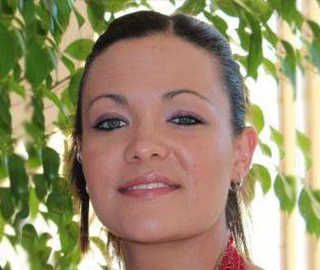
MSc Cyber Security (part-time)
I currently work as Network Security Engineer for Ricoh UK, but I am contracting for Vodafone. I am part of the Vodafone Security team which deals with a whole range of technologies, from firewalls to proxies and load balancers. My role, as part of the team, is to manage remote access connections, build risk mitigation strategies, and ensure fault tolerance in the network.
I entered the cyber security profession to challenge myself, during a time when I wanted to reinvent myself, to start all over. I have studied Chinese and French at the university, and I felt I should be bolder than that so I accepted my first job in IT. Once I started working, I felt that IT suited me better, so I decided to start studying…4 years after, and here I am.
The most important challenge and opportunity within cyber security at the same time is data velocity. How can we classify, characterize and mine all this data? Also, a very important question we should ask ourselves is how we can ensure the confidentiality, integrity and availability of our data once it is exposed on the Internet. The management framework is continuously changing: the goals an organization sets are only for a limited time, afterwards it all has to be revised and changed. What I believe is that challenges come with opportunities, and there are a lot ahead of us.
MSc Cyber Security was a must-do on my list from the moment I came in contact with networking. I think that network security is very important nowadays and everyone should have a minimum knowledge about it. I think that Cyber Security is in a good place right now. A lot of security mechanisms have been developed: strong encryption key and authentication mechanisms, big data analytics, plus the use of cyber security intelligence, like penetration testing, which allows us to gain great insight on the threats we are fighting against. There is always going to be a residual risk, we cannot protect ourselves and our business entirely, but we can try by investing in education, endpoint, BYOD, mobile, cloud, IoT security, monitoring, risk management, information governance, etc.
I believe that diversity is one of the important things that make a company become a great company. Supporting diversity in a company means offering different people from different countries, religions, ages the opportunity to bring great ideas on the table. For me, education played an important part in me entering cyber security as an adult. As a child, from my mother to my teachers, I was encouraged to study foreign languages and social sciences because this was more suitable for a woman. My father thought differently, he was able to see that IT was the future, and no matter woman or man, we should try at least learn the basics. I guess that for most of us the reason that only 11% of the information security workforce is female is the lack of a role model: women who could show they can be as efficient and innovative as men in cyber security, and that the only boundaries are the ones we create ourselves.
Information security awareness, equal opportunities for men and women alike, educational programmes for women would help to increase the diversity of the cyber security workforce. I believe that schools can introduce courses from different areas of IT at an early stage so that pupils can have the time to make an idea about the perspectives they have.
Due to the programmes there are out there focused on engaging more women in cyber security, and the role models whose stories inspire us all, I am really positive that we won’t be talking about cyber security as a male-leading industry, but as an equal opportunity one.
View course
“The knowledge that I have gained through MA in Applied Project Management has been crucial and invaluable to my success.”